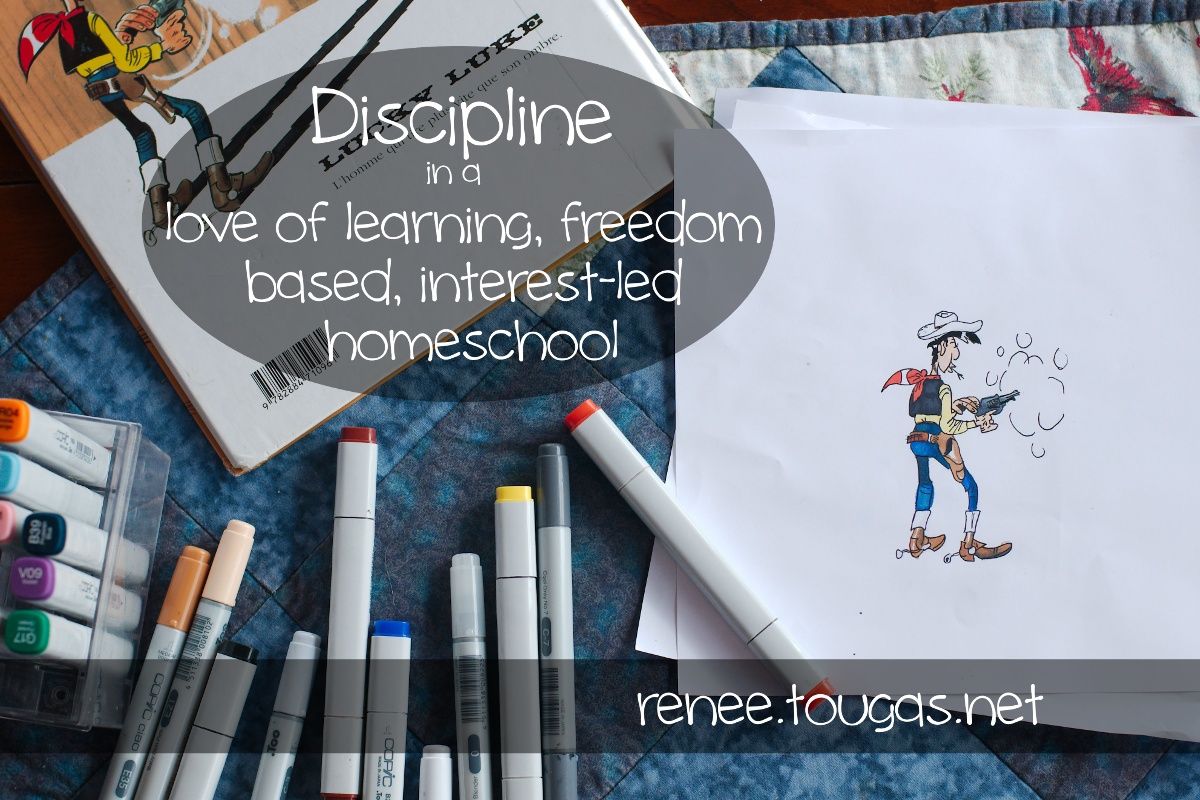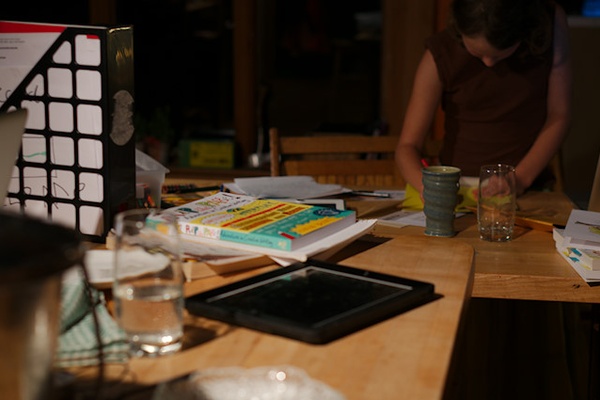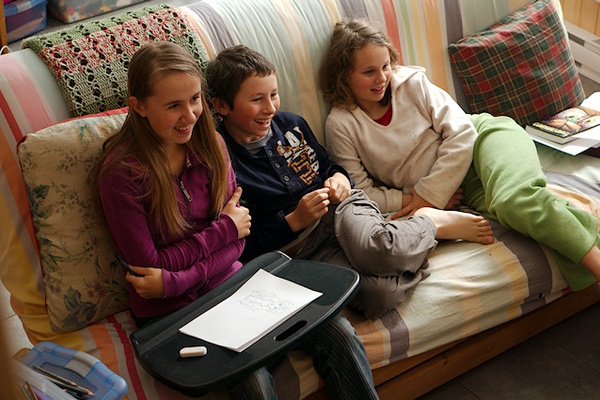Discipline in a Love of Learning, Freedom Education, Interest-Led Homeschool

This series of three posts addresses two myths about interest-led learning/self-directed learners.
Myth One: If you are a self-directed learning family and let your children largely pursue their own interests as their education, you must not have a very disciplined home and family life. It must be chaos after all to let your kids "do their own thing".
Myth Two: If you are a self-directed learning family and let your children largely pursue their own interests as their education, your children won't learn self-discipline. They don't learn to apply themselves to less-than-pleasant tasks. In short, they are not equipped for real life drudgery.
I address myth one in my first post, in which I explained what early years discipline looked like in our home.
When our children were little we established firm boundaries, in the context of unconditional love. Now we all experience a great deal of freedom within those boundaries. And as our children get older, while still living in our home, they will learn to set their own boundaries.
I address myth two in posts two and three. In the second post of the series I propose that many people see compulsory schooling as the training ground that prepares you for a life you don't necessarily want to live and forced academics is a great opportunity, and main vehicle, for character development. People accept this as "just the way it is".
I disagree, I think our world needs self-motivated thinkers, leaders, problem solvers, do-ers and creators. And I think academics, specifically in the younger years, are not the main vehicle by which to develop character.
In the third and last post of this series I propose that children can learn to apply themselves to difficult tasks, and become self-disciplined adults by:
- participating in normal family life. The comings, goings and doings of a family require discipline, and eventually self-discipline.
- investing large amounts of time, energy, and effort in designing their own studies and self-directing their learning.
I explain both points, illustrating what this looks like in both elementary and high school years.
In the third post I conclude with tips, strategies, and a challenge to help you develop self-discipline in an interest-led, freedom based homeschooling environment.
These tips can be applied to families in any schooling situation but I believe are most effective when children truly do have a large degree of freedom in their learning.

Developing Self-Discipline
December 6, 2013
Children can learn to apply themselves to difficult tasks, and become self-disciplined adults by investing large amounts of time, energy, and effort in designing their own studies and self-directing their learning.

Drudgery & Discipline
December 5, 2013
I don't have a problem with academics. But I question compulsory academics in a society where the success of its citizens, the longevity of the society itself, rests not on people having an acquired knowledge base or following a set path, but rests instead on people being empowered with a skill set of creative thinking, entrepreneurship, and leadership.

Training in the Early Years ~ A Foundation for Self-Discipline
December 4, 2013
I'm a big believer in boundaries and unconditional love, and then total freedom in the loving relationship of those boundaries.





